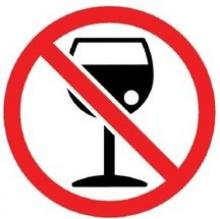Shabbat Shalom and welcome to Judeo Talk. Because of Shavuot last week, the Torah readings are a bit staggered, so Naso is this week's portion as well. That suits me just fine because there is a very interesting segment in Naso that we just didn't have time to cover last week. Two things, actually, though the two are placed back-to-back in the same chapter, so there is a likely link between them.
The first item I would like to talk about today is the concept of the Nazir. This is a highly unusual thing for Judaism. A Nazir is, in plain terms, an ascetic, a person who seeks spiritual purity through physical self-denial. I say this is unusual because Judaism typically doesn't promote the idea of enlightenment through suffering and detachment. There is no tradition of Jewish monasticism and indeed many physical pleasures are (in the right quantities and circumstances) known as mitzvot. Yet, in chapter 6 of parsha Naso, God describes the Nazirim as being holy in their self-denial.
There are no special duties or customs of the Nazir as far as the Torah is concerned. If Nazirim did anything specific for society, those details have been lost to time. The only thing that makes one a Nazir (or Nazirah for a woman) is to abstain from drinking wine, eating grapes or consuming anything else related to vine fruit. This can be extrapolated to include all finery in general, but that's just building a fence. In addition, a Nazir is not allowed to cut his or her hair during the entire course of his or her vow. Also, a Nazir is not permitted to come into contact with the dead, as that would make them ritually impure.
The Torah says that when a Nazir is ready to relinquish his or her vow, or if he or she accidentally comes into contact with a dead body, the Nazir must shave his or her head outside of the Tent of Meeting, bring the hair into the tent along with a variety of offerings and burn the hair on the altar. After that point, all the restrictions placed on the Nazir are lifted.
This calls up some heavy questions. Is the Torah telling us that we can attain spiritual enlightenment through asceticism, or at the very least make ourselves holy through it? Not necessarily. After all, in Judaism wine is a sacrament and a symbol of prosperity. To say that abstaining from wine makes one holy is to invite the possibility that drinking wine is inherently sinful. Rather, the thing that makes the Nazir holy is the vow itself. A person who consciously chooses to give up something that is otherwise common and routine would likely be constantly conscious of the spiritual motivation to do so. This is also why the Nazir is not permitted to cut his or her hair. It is a constant physical reminder of one's dedication to spiritual contemplation. By cutting the hair at the end of the vow, the Nazir experiences a milestone of sorts. The point is not the pain of denial, but the thoughts the denial brings to mind.
The second element of Numbers chapter 6 that interests me is the first mention of what we know today as the Priestly Benediction. It is not so much a prayer as a reassuring mantra. The Kohanim are supposed to tell congregations of Israelites:
"Adonai will bless you and protect you. Adonai will shine the divine visage upon you and be gracious to you. Adonai will lift up his countenance upon you and give you peace."
This mantra is said at very special occasions and on high holy days. It is unlike any other prayer or phrase in Jewish liturgy. The question is, why is it here in Naso? Why does it directly follow the laws of the Nazir? To answer this question, we need only ask ourselves why someone would choose to become a Nazir in the first place. Those who are already at peace don't need to seek holiness through asceticism. The self-denial most likely springs from an internal disquiet. The Torah, in recognizing that some people will experience such intense spiritual yearning, makes a provision for a period of deep reflection in the life of a Nazir. Yet it also follows that provision with a reiteration of God's unconditional love. The Priestly Benediction does not say "God will bless you if and only if (condition)..." it simply says that God will bless you. This chapter of the Torah is letting us know that spiritual tumult is a part of life, but that inner peace is always a possibility, and it is denied to no one, especially those who actively seek it.
